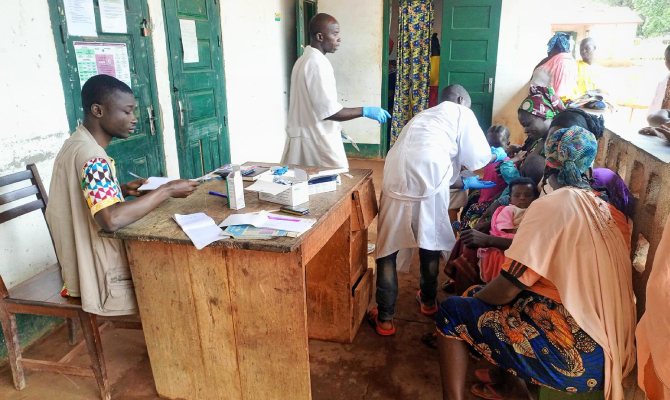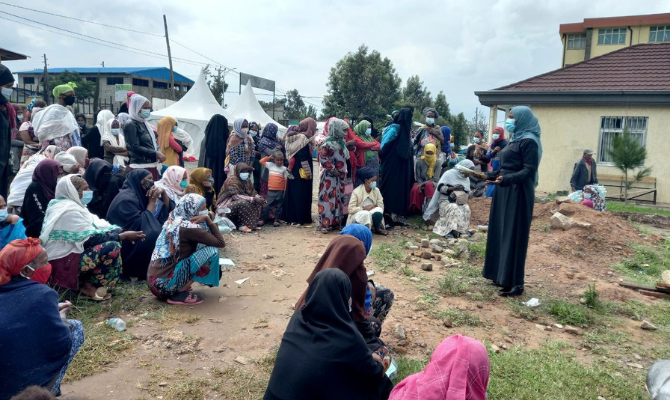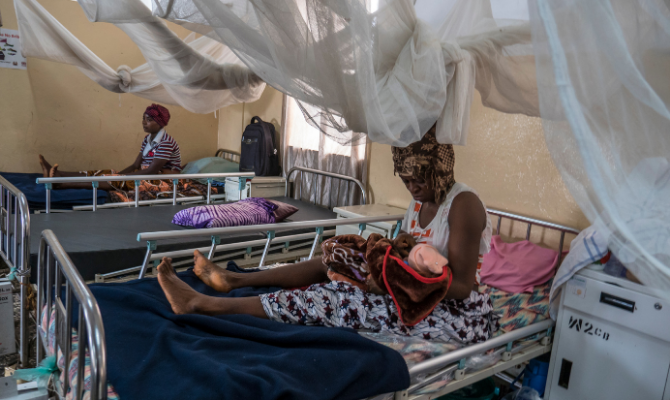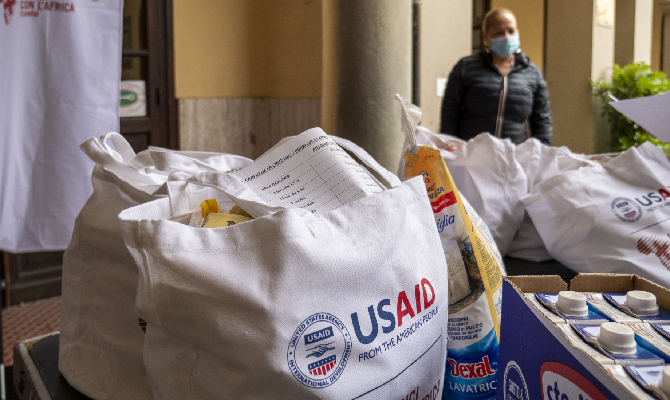The Central African Republic ranks 188th out of 191 countries on the Human Development Index. Marked by significant instability, conflict, and armed violence, it has a large number of inhabitants living in extreme poverty: 500,000 people are displaced, about 3 million people did not have enough food in 2023, and 2.4 million are in extreme need.
In such a problematic situation, Doctors with Africa CUAMM, thanks to the support of the European Union, expands its efforts to bring an integrated and cross-cutting health response to the sub-prefecture of Koui, supporting the second-level hospital and the four health centers in the area, to redistribute the patients of the nearby hospital of Bocaranga, so far the only functioning one.
Special attention is given to childbirth and newborn care and malnutrition, especially in children under the age of five. Equally important is the training of health personnel, community outreach, and a great deal of work on youth and women who have experienced violence and abuse in an area characterized by the presence of many armed groups.
About 80 km from the hospital in Bocaranga, where Doctors with Africa CUAMM already have a presence and are involved in responding to emergencies, is the Koui hospital, which serves more than 160,000 people. Basic essential services are lacking here, and those that are present are difficult for the population to access.
Reaching the last mile of the healthcare system, those often forgotten outskirts of the world, is a deep commitment for CUAMM, embedded in the DNA of an NGO that has been working with Africa for over 70 years. After initiating its presence in the country by engaging with the Pediatric Complex in the capital, Bangui, CUAMM has chosen to operate in areas such as Bocaranga and Bossangoa.
Now, this new project aims to rehabilitate the hospital in Koui, reorganizing the space to provide better care and relieve the hospital in Bocaranga. Already, the first data collected are encouraging: in the first months, 2,754 outpatient visits for children under five years old; 104 assisted deliveries; 355 prenatal visits; 484 hospitalizations; 142 children vaccinated within the first year of life; 229 people reached by health education messages.
The intervention includes the renovation of the operating room, the maternity ward, and the electrical and plumbing systems; the improvement of waste disposal procedures; and the construction of latrines. CUAMM will also ensure the supply of medicines and medical materials, as well as the necessary equipment for the various departments. To meet the needs of the population, new healthcare staff will be hired, and training and updates will be provided for those already employed. Lastly, a transfer system for more complicated cases and emergencies, particularly obstetric ones, will be implemented through motorcycles, operating from the outskirts and villages to the hospital.
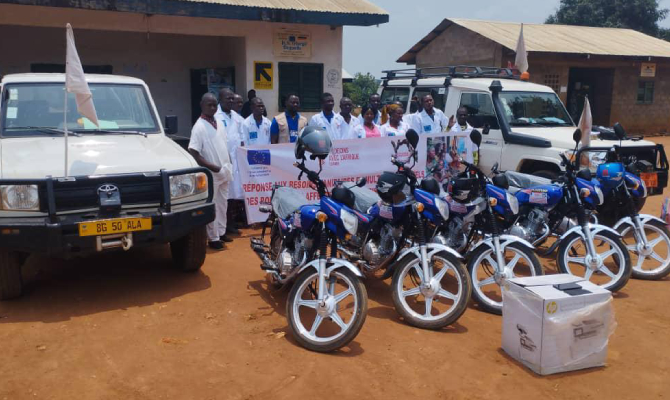
The intervention titled “Project to Respond to the Health and Multidimensional Needs of People Affected by the Humanitarian Crisis in Ouham Pende Prefecture” is co-funded by the European Union through the Directorate-General for European Civil Protection and Civil Aid Operations and will be implemented by Cuamm in collaboration with Ofhard (Women’s Organization for Humanitarian Action and Sustainable Development), a local NGO.
EU Civil Protection and Humanitarian Aid: The European Union and its Member States are among the world’s leading donors of humanitarian aid. Relief assistance is an expression of European solidarity with people in need all around the world. It aims to save lives, prevent and alleviate human suffering, and safeguard the integrity and human dignity of populations affected by disasters and human-induced crises. Through the Directorate General for European Civil Protection and Humanitarian Aid Operations of the European Commission, the European Union helps millions of victims of conflict and disasters every year. With headquarters in Brussels and a global network of field offices, the EU provides assistance to the most vulnerable people on the basis of humanitarian needs.”


